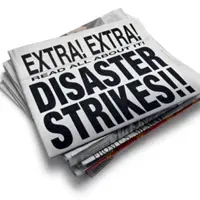Media Crisis Management Plan
Written by

Remember the old adage, if you fail to plan, you plan to fail? That’s especially true once you find yourself in the middle of a media crisis.
Crises are like storms; if you’re not prepared beforehand, they can whip you into a frenzy.
Here’s an exercise to help you get crisis ready.
Media Crisis Management Plan
- Who pushes the alarm button, makes the call that there is a crisis, and calls the crisis team together?
- Who is on the crisis team (and more importantly, who is not? Too many opinions in a crisis can result in paralysis. Generally any decision is better than none).
- Who is to be the public face of your organisation? He or she must be articulate, personable and someone an audience can relate to.
- Who will sign off on the strategy and all tactical manoeuvres? Is it the CEO or the Chairman? Get a clear chain of command operating so there can be swift and decisive action with little second-guessing after the fact.
- Do you need outside help? Is it advisable to have an independent, more objective voice, on the team from an outside PR company? If so, do reference checks to establish they know what they are doing and have delivered results in other crises.
- Rehearse and review your crisis plan regularly.
When You Are Under Siege
This is a situation where the crisis arouses so much media interest there are large numbers of reporters and photographers outside your business or the scene of the incident troubling you. The situation may involve, injury, death, violence or accident. It may be a failure of service that affects the wider community.
- Your public face, your spokesperson, needs to be visibly present and working on the problem.
- He or she needs to be available for media interviews 24/7 and giving updates and briefings on progress.
- Tell them as much as you can to earn their belief and trust in what you say.
- If possible informally involve reporters in the decision making process, journalists enjoy being on ‘the inside’ and it will assist in building trust and favourable coverage.
- A barrage of media attention can have adverse and peculiar effects on your staff, best to keep them at a distance from the media and focus attention solely on your spokesperson.
- Keep working on your risk analysis. Have your crisis team constantly thinking about what might happen next, who might criticise your actions, or what additional events could occur to compound the problem.
* * * Next Steps * * *
Have a look at crises that are running in the media now. How did those at the centre of it react? What could they have done better?
Most importantly, read and review your own Crisis Plan every six months. Get your crisis team together and rehearse what you would do in your worst-case scenarios.